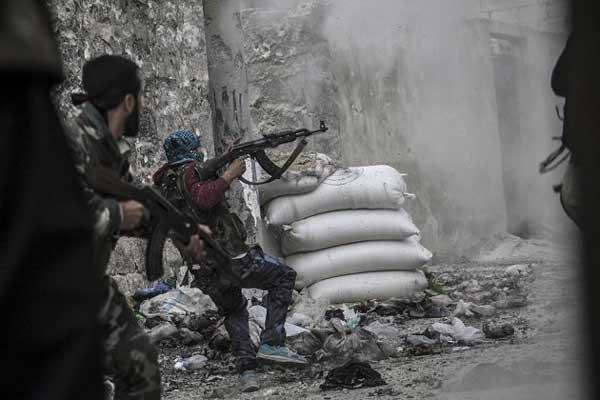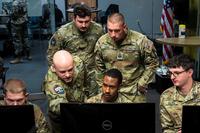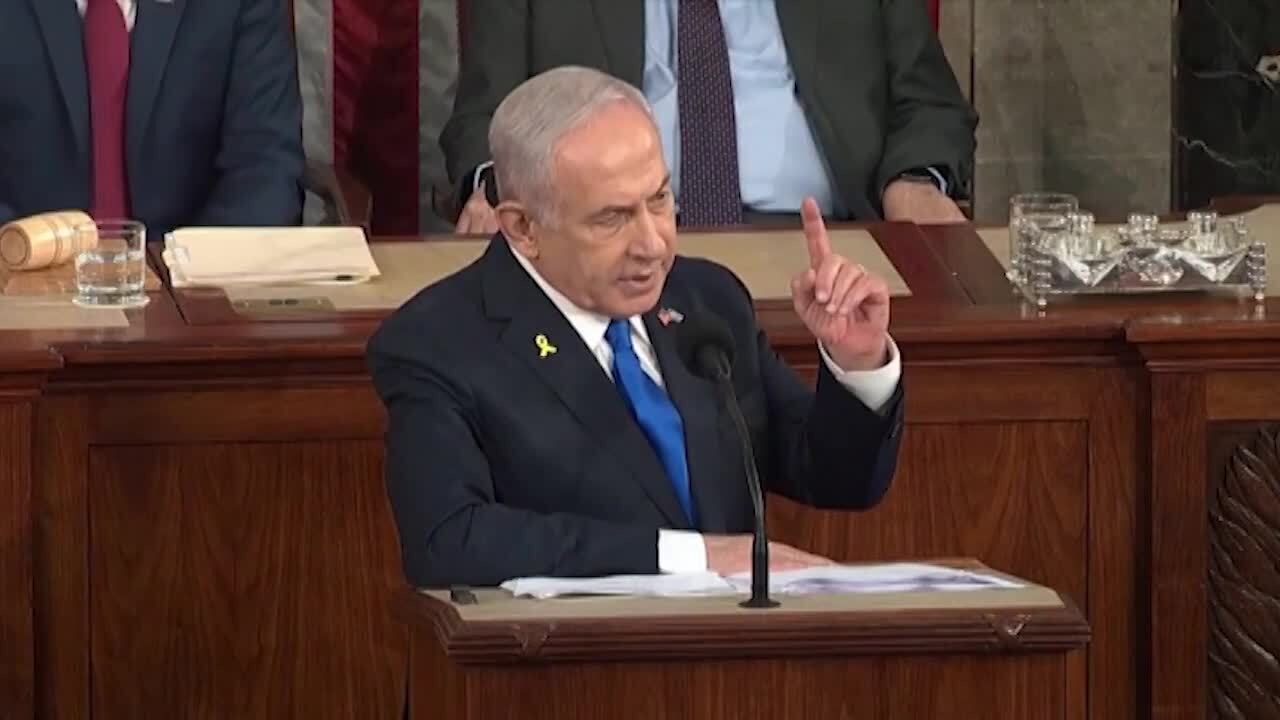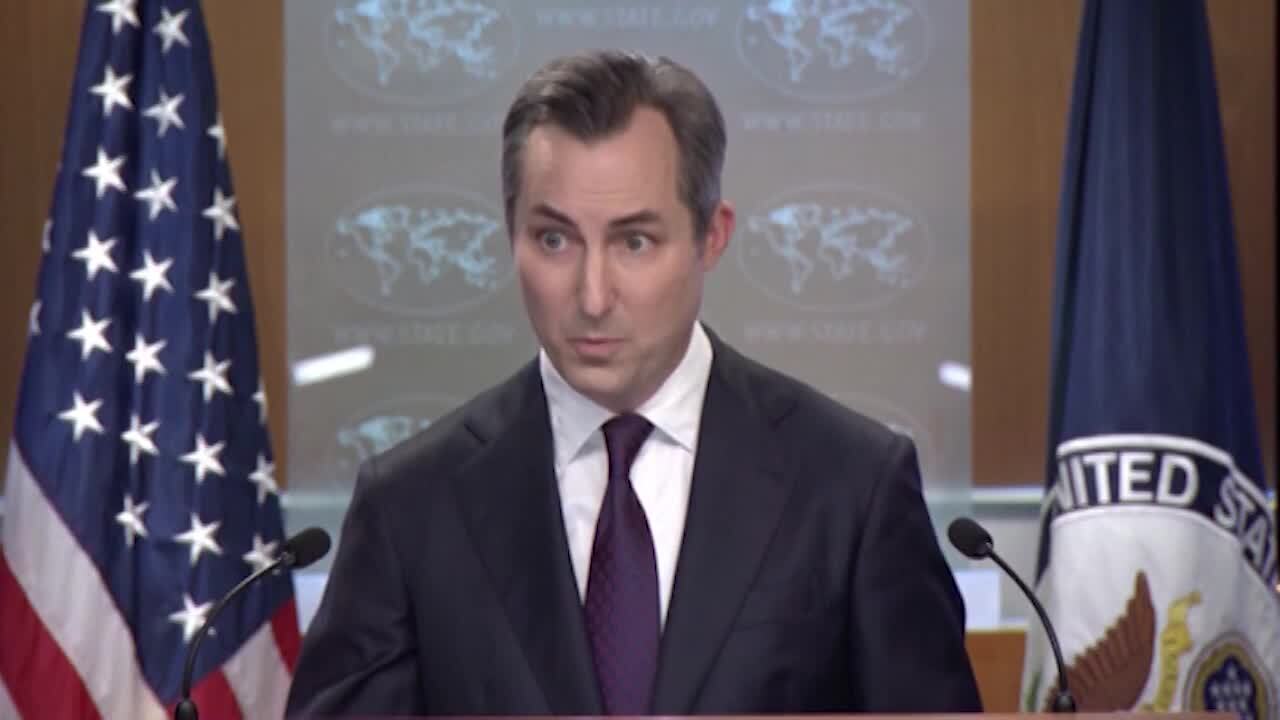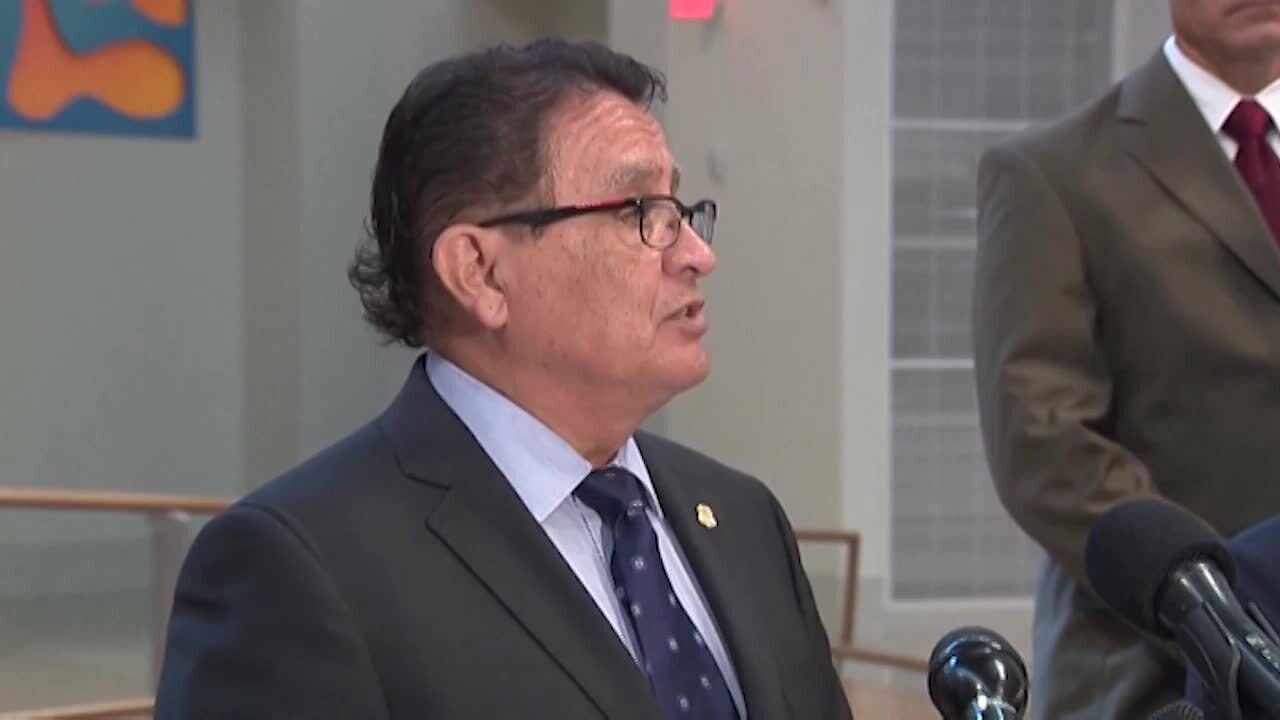Defense Secretary Chuck Hagel said Thursday that infighting among rebel factions in Syria left the U.S. in doubt on how to continue support for rebels in the ongoing civil war that has killed more than 120,000 and sent millions of refugees into neighboring countries.
"It's not an easy choice between the good guys and the bad guys here," Hagel said at a Pentagon briefing. "This is a problem -- what has occurred here -- a big problem," Hagel said.
However, Hagel said the bloody factional disputes among the rebels were not affecting the international plan to destroy the chemical weapons stores of the regime of Syrian President Bashar al-Assad.
Hagel said the plan to move hundreds of tons of chemical agents to the port of Latakia by the end of the year and then have them destroyed aboard a U.S. ship was "still on track."
The chaos in Syria, and conflicting reports on the status of a key rebel ally of the U.S., dominated a joint news conference by Hagel and visiting Singapore Defense Minister Ng Eng Hen that was intended to focus on the threat posed by China's declaration of an Air Defense Identification Zone over the East China Sea. However, the questions and discussion were dominated by Syria.
The U.S. defense secretary said the Pentagon was concerned to see the "moderate opposition" set back, but military leaders continue to evaluate the possible options.
Hagel spoke after reports that Gen. Selim Idriss, the U.S.-backed leader of the rebel Free Syrian Army, had fled to Turkey or Qatar to avoid capture by the Islamic Front, another rebel faction.
Khaled Saleh, a spokesman for the Syrian National Council umbrella opposition group that includes the FSA, later denied to Agence France Presse that Idriss had fled. Saleh insisted that Idriss was in southern Turkey and was negotiating with the Islamic Front, AFP reported.
On Wednesday, the Islamic Front's seizure of SNC supply warehouses near the Turkish border prompted the U.S. and Britian to cut off non-lethal aid to the SNC and the FSA.
"We continue to support General Idriss and the moderate opposition," Hagel said. However, he said the current situation is an indicator to "how complicated and dangerous the situation is."
Regional reports suggested that the recent setbacks for the FSA and its parent group, the Supreme Military Council, cast doubt on the relevance of the FSA as a continuing factor in the civil war.
A Senate Foreign Relations Committee hearing earlier this week focused on the growing humanitarian disaster in Syria and the impact on neighboring countries.
Lebanon has taken in more than 1.5 million refugees from Syria, and Jordan is now home to more than 600,000. Ambassadors from both countries testified that there were no immediate plans to close the borders, but they warned that both countries were increasingly unable to cope with the crisis.
Jordanian Ambassador Alia Bourwan testified that "the human dimension that has emerged from this multi-faceted crisis, whether inside Syria or in neighboring countries, has reached an alarming state."
"Our Armed Forces are witnessing firsthand the human suffering as they receive elderly men, women and children at the border, fleeing from the atrocities and human tragedy," Bourwan said.
